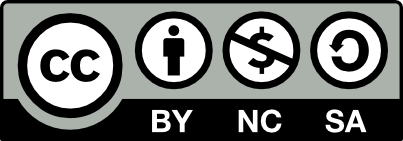Social communities and research by university students
Article Details
Authors
Publication Information
Keywords
virtual
tools
investigation
social
Abstract
The Internet is an indispensable tool, social communities favor publishing, sharing information and self-learning.
Purpuse: Determine the use of virtual communities as a research tool for postgraduate students.
Material and methods: Cross-sectional, non-experimental descriptive, through a survey aimed at the use of social communities in research to postgraduate students of the School of Postgraduate Studies, School of Engineering of the University of San Carlos de Guatemala, enrolled in 2019, randomly selected.
Results: 60 people were studied, 50% female, all admitted the use of a virtual community, seven out of 10 use it as a reference for scientific research and three out of 10 use it for non-scientific information. The virtual community for consulting the most used scientific information is Google 86%, Google Scholar 46%, Google Drive 40%, YouTube 34%, WhatsApp 18%, Facebook 16%, other social networks 12%, and scientific journals 2%.
Conclusion: A third of students use virtual communities 3 times or more per week as a tool in scientific research by search engines; other sources of scientific review are less used. Initiatives that promote communication, innovation, entrepreneurship and access to scientific information in virtual communities should be created.
Graph - Number of readers per month
Downloads
How to Cite
License
 |
This work is licensed under Creative Commons Attribution-NonCommercial-ShareAlike 4.0 International (CC BY-NC-SA 4.0) |
| Copyright notice |
| Authors will retain their copyright and assign to the journal the right of first publication of their work, which will be simultaneously subject to a Creative Commons Attribution-Noncommercial-ShareAlike 4.0 International license (CC BY-NC-SA 4.0) that allows third parties to share the work as long as its author and its first publication in this magazine are indicated. | |
| Authors may adopt other non-exclusive license agreements for the distribution of the version of the published work (eg: deposit it in an institutional repository or publish it in a monographic volume) provided that the initial publication in this journal is indicated. | |
| Authors are allowed and recommended to disseminate their work through the internet (eg, in institutional telematic files or on their website) before and during the submission process, which can lead to interesting exchanges and increase citations of the published work. (See The effect of open access). |
| About the Creative Commons license |
|
|
You are free to: |
| Share — copy and redistribute the material in any medium or format. | |
| Adapt — remix, transform, and build upon the material. | |
| The licensor cannot revoke these freedoms as long as you follow the license terms. |
Under the following terms: |
| Attribution — You must give appropriate credit, provide a link to the license, and indicate if changes were made. You may do so in any reasonable manner, but not in any way that suggests the licensor endorses you or your use. | |
| NonCommercial — You may not use the material for commercial purposes. | |
| ShareAlike — If you remix, transform, or build upon the material, you must distribute your contributions under the same license as the original. |
|
| No additional restrictions — You may not apply legal terms or technological measures that legally restrict others from doing anything the license permits. |

